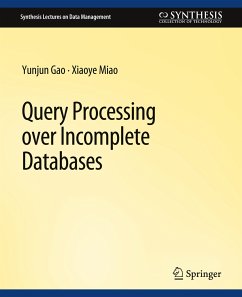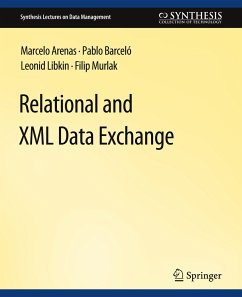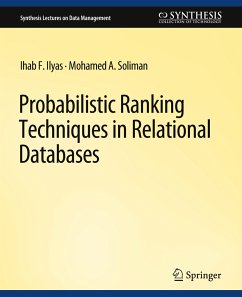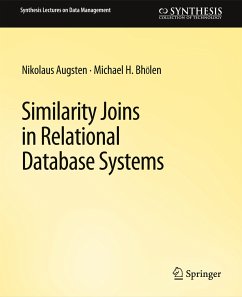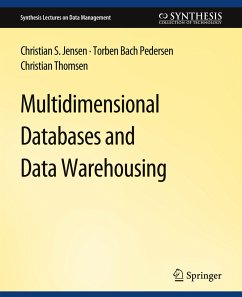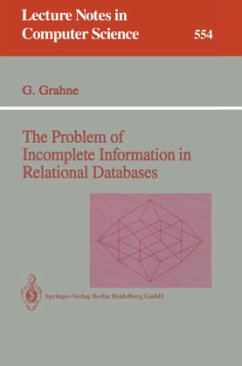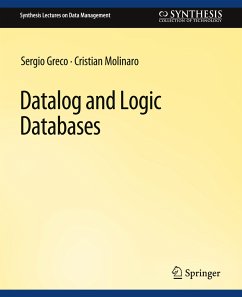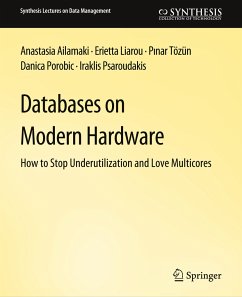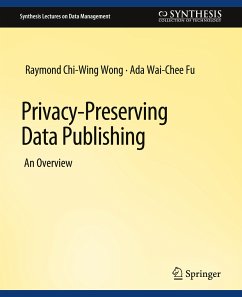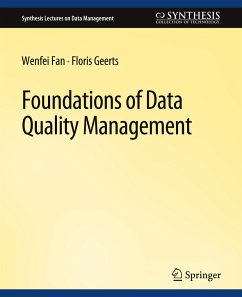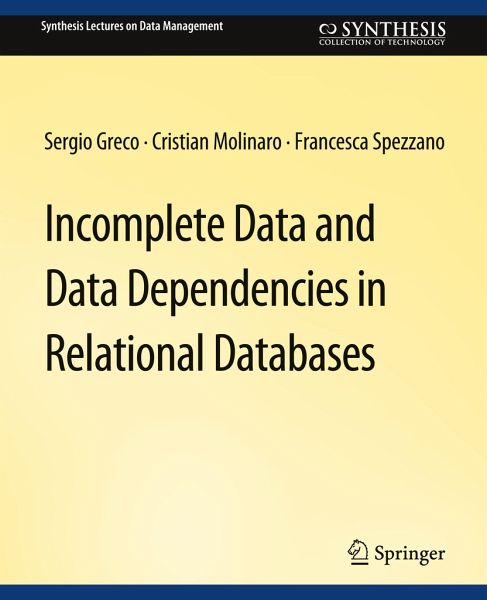
Incomplete Data and Data Dependencies in Relational Databases

PAYBACK Punkte
0 °P sammeln!
The chase has long been used as a central tool to analyze dependencies and their effect on queries. It has been applied to different relevant problems in database theory such as query optimization, query containment and equivalence, dependency implication, and database schema design. Recent years have seen a renewed interest in the chase as an important tool in several database applications, such as data exchange and integration, query answering in incomplete data, and many others. It is well known that the chase algorithm might be non-terminating and thus, in order for it to find practical ap...
The chase has long been used as a central tool to analyze dependencies and their effect on queries. It has been applied to different relevant problems in database theory such as query optimization, query containment and equivalence, dependency implication, and database schema design. Recent years have seen a renewed interest in the chase as an important tool in several database applications, such as data exchange and integration, query answering in incomplete data, and many others. It is well known that the chase algorithm might be non-terminating and thus, in order for it to find practical applicability, it is crucial to identify cases where its termination is guaranteed. Another important aspect to consider when dealing with the chase is that it can introduce null values into the database, thereby leading to incomplete data. Thus, in several scenarios where the chase is used the problem of dealing with data dependencies and incomplete data arises. This book discusses fundamental issues concerning data dependencies and incomplete data with a particular focus on the chase and its applications in different database areas. We report recent results about the crucial issue of identifying conditions that guarantee the chase termination. Different database applications where the chase is a central tool are discussed with particular attention devoted to query answering in the presence of data dependencies and database schema design. Table of Contents: Introduction / Relational Databases / Incomplete Databases / The Chase Algorithm / Chase Termination / Data Dependencies and Normal Forms / Universal Repairs / Chase and Database Applications





